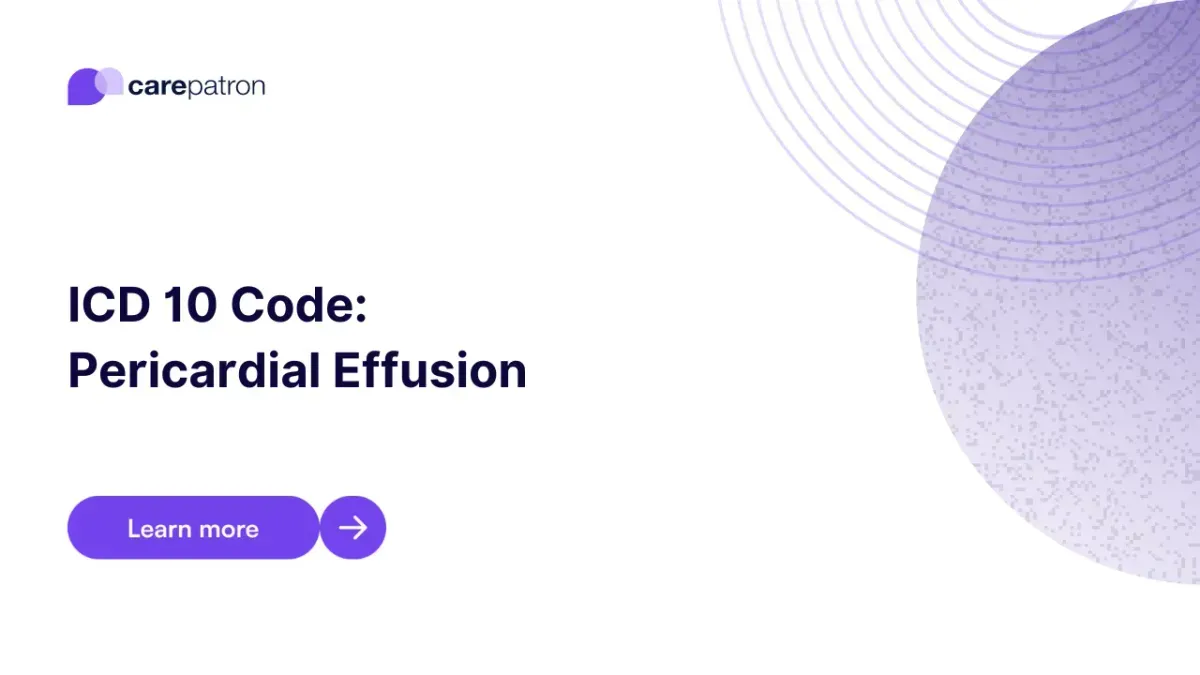
Pericardial Effusion ICD-10-CM Codes
Learn about the pericardial effusion ICD-10-CM codes you can use through this guide.
Use Code
Commonly asked questions
Pericardial effusion can be caused by inflammation, injury, infections, heart surgery, or other conditions affecting the heart.
While mild pericardial effusion might not be dangerous, severe cases can lead to cardiac tamponade, a life-threatening condition where the accumulated fluid compresses the heart.
Treatment for pericardial effusion depends on its cause and severity. It may include medications, pericardiocentesis to remove the fluid, or surgical procedures.
EHR and practice management software
Get started for free
*No credit card required
Free
$0/usd
Unlimited clients
Telehealth
1GB of storage
Client portal text
Automated billing and online payments
